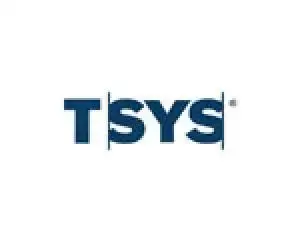Company Registration in Singapore
For Indian entrepreneurs, Singapore is a popular destination to incorporate a Singapore company. Mainly, Singapore has been a hub for business activities for ages. Also, it is a corporate-friendly nation that provides many schemes and technologies that make it attractive for foreign entrepreneurs to register a business in Singapore.
Foreign entrepreneurs are allowed to own 100% ownership of the company without having local shareholders and partners. Also, from a business point of view, it has a strategic location and helps in trade, foreign exchange, and export-import of commodities.
Singaporean Legislation offers the most welcoming investments and trade policies in all of Asia. From tax exemptions to company incorporation in Singapore. Below in this article, we have discussed the process of company formation in Singapore with complete documents.
Regulatory Authority for Company Incorporation in Singapore
The Regulatory Authority for Company Incorporation in Singapore is the ACRA, i.e., the Accountability and Corporate Regulatory Authority of Singapore. The ACRA is responsible for regulating the following in Singapore:
- Business Entities
- Public Accounts
- Corporate Service Providers
Benefits of Company Formation in Singapore
We will detail you a variety of reasons for registering your Company in Singapore in this section of the web page:
2.jpg)
1. Economically-strong Nation
Singapore has a well-developed and free-market economy primarily based on the following:
- Trading
- Finance
- Manufacturing
The Island Nation has grown into a developed economy at a fast rate, owing to the judicious use of its resources. Seeing this, many Foreign Establishments have established their businesses in Singapore.
2. Corporate-friendly taxation system
Singapore has a rational tax system, which imposes no tax on the capital gains of the corporate or the dividends obtained from stock investing in a business. This becomes the Lion Town lucrative for budding entrepreneurs wanting to register a new business as Multinationals. Singapore has created a lucrative taxation system in which corporate tax is limited to 0% to 17%. This is relatively lower than the corporate taxes of most developed countries.
3. Legislature has provisions for Double Taxation Avoidance
Singapore is in DAA (Double Taxation Avoidance) Agreement with more than 50 nations across the globe. The DAA agreements ensure that all the transactions between Singapore and other countries don't include double taxation. Furthermore, Singapore provides Unilateral Tax Credits for countries that are not in the DAA agreement with Singapore.
4. Complete Ownership to Foreign Investors
Singapore allows Foreigners to own all of the Company's stock incorporated in Singapore. Singaporean Authority requires no local partners or shareholders from the Foreign applicant. The Authority also puts no restrictions on the amount of capital the Foreign Establishment can bring in from their native place to invest in the Company in Singapore.
5. Easy Company Incorporation Procedure
The Singapore Company registration procedure is simple and straightforward. It does not require the applicant of any complex paperwork or an official visit to the Authority premises. The entire incorporation procedure has been completely digitized.
6. Singapore Authorities have fore Start-Up Policies
Singapore has long adopted innovation-friendly policies to promote Start-Up culture in the country. They extend various tax incentives as well as in-kind assistance schemes for pumping start-up operations in the country. The fruits of such progressive policies are ubiquitously available to both local and foreign entities.
7. Singapore facilitates world-class Infrastructure
Singapore has world-class infrastructural facilities which cater to the businesses' logistical demands. A well-supplied public system is a boon for business growth. The current Infrastructure helps improve registered companies' productivity in Lion Town.
Company Incorporation Models in Singapore
Singapore boasts of three major types of corporate structures in Singapore, along with the Branch and regional office registration:
- Sole Proprietorship
- Partnerships
- Company
- Branch office, Representative Office, or a Subsidiary of a Foreign Company
.jpg)
Type 1 : Sole Proprietorship in Singapore
- A Sole Proprietorship is a business model which involves minimal risk.
- Small-scale businesses in Singapore adopt this business model.
- Proprietorships are run by individuals.
- It is a single-ownership affair where the Business is not a separate entity from its owner.
- The property purchased for Proprietorship Businesses is purchased in the proprietor's name.
- The business owner is solely liable for all the debts and liabilities related to the Proprietorship.
Type 2 : Partnership Businesses in Singapore
.jpg)
Partnerships are business models in which two or more individuals are involved in profit-making activities while running their commercial activities. Many business models in Singapore lie in the ambit of a Partnership arrangement. Let us discuss them one by one.
General Partnership Arrangement
- In a General Partnership, the Business comprises a minimum of two and a maximum of 20 partners jointly working to carry out profit-generating activities.
- The General Partnership is not a separate legal entity from its member partners.
- Therefore, all the properties purchased by the General Partnership are not owned in the name of the partnership.
- All the General Partnership members have unlimited liability against their debts and obligations.
- The General Partnership's registration validity is of three years.
- To know the one-time registration fee for a General Partnership in Singapore, connect with the Incorporation Experts at the Registrationwala.
Limited Partnership Arrangement
- In a Limited Partnership, a minimum of one general partner with unlimited liability and a minimum of one limited partner is required by the ACRA.
- The Limited Partner's liability is fixed to the amount of capital he infuses into the Limited Partnership.
- There is no upper limit on the number of member partners in a Limited Partnership arrangement.
- This partnership structure is adopted for professional business services such as accounting firms, legal consultancies, and more.
Limited Liability Partnership Arrangement
- An LLP or a Limited Liability Partnership offers the flexibility of a partnership as well as the limited liability feature of a company.
- Unlike Partnerships, an LLP is a separate legal personality. It is very different from its member partners.
- Each LLP must have at least two partners.
- An LLP member partner can be any of the following entities:
- Natural Person
- Corporations
- Partnerships, both General and Limited
- Other LLPs
- Every LLP is also required to appoint a manager who must be a resident of Singapore.
Type 3 : Company
- A Company is the most sought-after business model in Singapore.
- Most foreign investors adopted such a model for expanding their businesses in Singapore.
- It is a separate legal entity from its members and shareholders.
- The liability of the members of a Company extends to the amount of their contribution to the Company.
The Companies in Singapore are further divided into the following corporate entities:
.jpg)
Exempt Private Company
- An Exempt Private Company is a Private Limited Company.
- Such companies are exempted from fulfilling compliances like annual financial statements in filing their annual returns.
- Exempt Private Companies enjoy certain autonomy in extending loans to their directors.
- Exempt Companies must add 'Pvt Ltd' with their trade names.
- Exempt companies can have a maximum of 20 shareholders.
- The shareholders of an Exempt Company must not include a Corporation.
Private Limited Company
- A Private Limited Company (limited by shares) has a share capital.
- A Private Limited Company (PLC) must maintain a maximum of 50 shareholders.
- Such shareholders can include corporations, such as Companies and Partnerships.
- In a Private Limited Company, the liability of its members is limited to the capital invested in it.
Public Limited Company
- A Public Limited Company can raise capital from the general public by offering its shares and securities.
- The Company must register the prospectus with the MAS (Monetary Authority of Singapore)
- A Public Limited Company can have more than 50 shareholders.
- A Public Limited Company must attach the 'Ltd.' phrase with its trade3 name.
- The liability of the Company's members is limited to the capital amount invested by them.
Public Company: Limited by Guarantee
- Such Public Companies are incorporated for non-profit charitable objectives.
- Such companies are aimed at the following activities:
- General Public Interests
- Trade Associations
- Charitable Organizations
- Such Public Companies must attach 'Ltd.' with their trade names.
- Public companies must not have any share capital
- Such Companies' liability extends to the guaranteed amount contributed to the Public Company's assets.
- The guaranteed amount must be specified in the Company's Memorandum.
Companies with Unlimited Liabilities
.jpg)
Private Unlimited Company
- An Unlimited Private Company is a hybrid company.
- It comes with or without share capital.
- The liability of the unlimited Company's members or shareholders is unlimited.
- Such liabilities can extend to their assets.
- The members/shareholders can have joint non-limited liabilities.
- Such companies must attach 'Unlimited' with their trade names.
Exempt Private Unlimited Company
This type of Company has a similar structure to the Exempt Private Company. But here, the members have unlimited liability.
Unlimited Public Company
In this Public Company, the liability of the members is unlimited against the Company's debts. Such companies must also attach 'unlimited' with their trade names.
Type 4 : Subsidiary Of a Registered Company
.jpg)
- A subsidiary is an extension of its parent company.
- Here the parent company has a separate legal identity.
- A subsidiary is managed by the Parent Company’s Board of Directors.
- A Subsidiary can use a different name from the parent company.
- The activities of a subsidiary company can be the same or different from that of its parent company.
- A Subsidiary is taxed as a local entity in Singapore.
- A subsidiary, like its Parent Company, can avail of all the available benefits.
- A Subsidiary must have at least one Local Manager who is a resident of Singapore.
- The minimum share capital required to open a subsidiary in Singapore is one Singapore dollar.
Type 5 : Branch Office
1.jpg)
- A Branch Office is an extension of its Parent Company.
- It is not a separate legal entity from its Parent Company.
- A Branch Office in Singapore is an extension of the activities carried out by its parent company.
- A Branch Office survives in perpetuity.
- The activities of a Branch Office are taxed as an NRE (Non-Resident Entity) in Singapore.
- The account of the branch office and its parent company must be filed with the Authority.
- The minimum capital required for opening a branch office in Singapore is one Singapore dollar.
- A branch office must have at least one manager or a local representative who is a resident of Singapore.
Type 6 : Representative Office
.jpg)
- A Representative Office or an RO is an interim entity.
- An RO is used to represent the parent company of Singapore.
- It represents the Parent Entity in the market for market research purposes and liaison work on behalf of the parent company.
- To establish an RO in Singapore, the parent company must be in Business for at least three years.
- Also, the parent company must have a minimum turnover of 250,000 Singapore dollars for RO registration.
- An RO is not a separate legal entity, but it can be thought of as a temporary administrative office.
- The name of a Representative Office cannot be changed.
- An RO must bear the name of its parent company along with the phrase 'representative office' at the end.
- An RO’s only functions are market research and coordination activities.
- The Representative Office must appoint a chief representative relocating from the parent company.
- The minimum capital requirement for representative office registration is one Singaporean dollar.
Documents required for Company Registration in Singapore
The Company registration aspirant must submit the following documents along with the Company Incorporation application to further their candidature with the Authority:
3.jpg)
- Chosen Name Reservation application form
- Detailed Description of the offered services by the applicant Company
- Registered Address of the applicant Company, Must be in Singapore
- Details of the following management entities of the applicant company:
- Shareholders
- Directors
- Secretary
- Copy of the Foreigner’s Passport
- Address Proof of the Foreign applicant
- Singaporean Representative or Agent’s Singaporean ID
- Articles of Association of the applicant Company
- Memorandum of Associations of the applicant Company
Process for Company Registration in Singapore
The applicant must religiously follow the detailed procedure for Company Registration in Singapore enlisted in the following points:
4.jpg)
Let us see each step one by one.
Step 1: Choose & Reserve the tradename for the applicant Company
- The first step in registering a company in Singapore is choosing an appropriate name and reserving it with the Authority.
- The applicant company must submit the chosen name to the online portal of the ACRA: BizFile.
- The Authority will check the availability of the selected name on this portal.
- After the BizFiler approval, the name will be reserved for the applicant Company.
- The applicant company must also specify the SSIC Code, depending on the type of commercial activities to be undertaken by the applicant company.
- After obtaining the name approval, the applicant can proceed further in the registration process.
Step 2: Choose the corporate structure for the proposed Business
The applicant company must decide the most suitable entity model as per the needs and requirements of the activities it wishes to undertake through that Company. One can choose to register a Company in Singapore from the following business model:
- Exempt Private Company
- Private Limited Company (Limited by Shares)
- Public Limited Company (Limited by Shares)
- Public Limited Company (Limited by Guarantee)
- Unlimited Company Model:
- Unlimited Exempt Private Company
- Unlimited Private Company
- Unlimited Public Company
Step 3: Choose the Financial Year End for the applicant Company
- In Singapore, the applicant company must choose the financial year-end.
- It is essential to choose an FYE because the Authority determines the corporate filings as well as taxes that are due to the Company that year.
- Moreover, Private Companies must hold their AGM within six months after the financial year closing.
- They must file their annual returns within seven months from the financial year closing.
- The Singaporean Authority designates the accounting period for the financial year closing as either 12 months or 52 weeks.
- Most private companies prefer the following dates to choose their FYEs:
- 31st March
- 30th June
- 30th September
- 31st December
Step 4: Appointment of the Company Executives for Incorporation
- Every Company in Singapore must appoint certain personnel before incorporation.
- The to-be-incorporated Company must appoint at least one director as well as a company secretary. These personnel must be
- Natural Persons
- Residents of Singapore
- The applicant Company must also appoint an auditor within three months of the Company’s incorporation.
- Exempted Companies must not appoint such entities under the law.
- The applicant Company must also appoint a CEO to oversee the Company's Business operations.
- Post the CEO appointment, the applicant Company must file the personal particulars of the CEO with the ACRA.
- Here, the appointment for the position of Managing Director is optional.
Before submitting for the Company’s incorporation, the applicant must submit the following details of the appointment to the ACRA:
- NRIC
- Full Name of the Executive
- Nationality
- Contact Information (E-mail Address & Contact Numbers)
- Residential Address Proof
After the application submission for Company's Incorporation, these appointed personnel must endorse their appointments via BizFile.
Step 5: Estimation of the share capital for the Company Incorporation
- The Company can issue the Share capital with or without its full payment.
- The Company can issue a share capital for a minimum amount of $1 per share at the time of its incorporation.
Step 6: Choosing the official location of the to-be-incorporated Company
- The applicant must decide and submit the Company's chosen official address to the Authority.
- All official communications with the government department will take place at this address.
- The Company's records and official registers will be kept at the official address.
- Every registered Company must keep the office open for at least three hours during business hours on business days except for weekends and public holidays.
- The official address must be Singapore.
- The Company can conduct its business operations from different locations also.
Step 7: Submission of the Company's Constitution
- The applicant Company must submit a copy of its constitution.
- The constitution must spell out the regulations regarding governing the Company.
- It must list down the rights and responsibilities of the following:
- Directors
- Shareholders
- Secretaries
- Managers
The above-mentioned management entities must also submit their following details:
-
- Registered Official Address
- Activities undertaken by the Company
- Member’s Liabilities
- Share Capital
- The applicant must submit a copy of its constitution to the ACRA at the time of its incorporation.
- They must keep a copy of the constitution signed by their shareholders at the Company’s registered office address.
Step 8: Application Submission for the Company's Incorporation
- After keeping with the above-mentioned rules, the applicant must submit their company registration application online.
- The application must be submitted via the BizFile+ portal.
- On application approval, the Authority will send an e-mail to the appointed officers of the Company for further endorsement.
- These appointed officers must endorse the application within 50 days from the date of e-mail reception.
- Within a week or two, the ACRA will issue the Business Registration certificate to the Company.
Our Assistance in registering your Company in Singapore
Our Incorporation experts provide you end to end company formation services in Singapore by assisting you in the following manner:
.png)
We ensure that your company incorporation services requirements for Singapore are always on time. Our professionals understand the intricacies of company incorporation procedures in Singapore. Thus, we have expedited the process – helping you incorporate your Company at an affordable price.
So, reach out to our Incorporation Experts and realize your dream of starting your own Company in Singapore.
FAQs
Q.1 What is Bizfile?
It is a Business Filing Portal of ACRA.
Q.2 What is Share Capital?
It is the amount of money the shareholders have committed to the Company.
Q.3 What is the full form of SSIC Code?
Singapore Standard Industrial Classification code.
Q.4 Is there a specific timeframe within which the applicant needs to register as a company after reserving the company name?
The applicant must register itself as a Company within 120 days from the date of the name reservation for the Company.
Q.5 what happens if the registration is not completed within that timeframe?
The Authority will not reserve the name after if the registration is not completed within the timeframe of 120 days.
Q.6 Where can I get the Singapore’s Registered Company list?
At the official website of the ACRA.


























2.jpg)
.jpg)
.jpg)
.jpg)
.jpg)
.jpg)
1.jpg)
.jpg)
3.jpg)
4.jpg)
.png)








